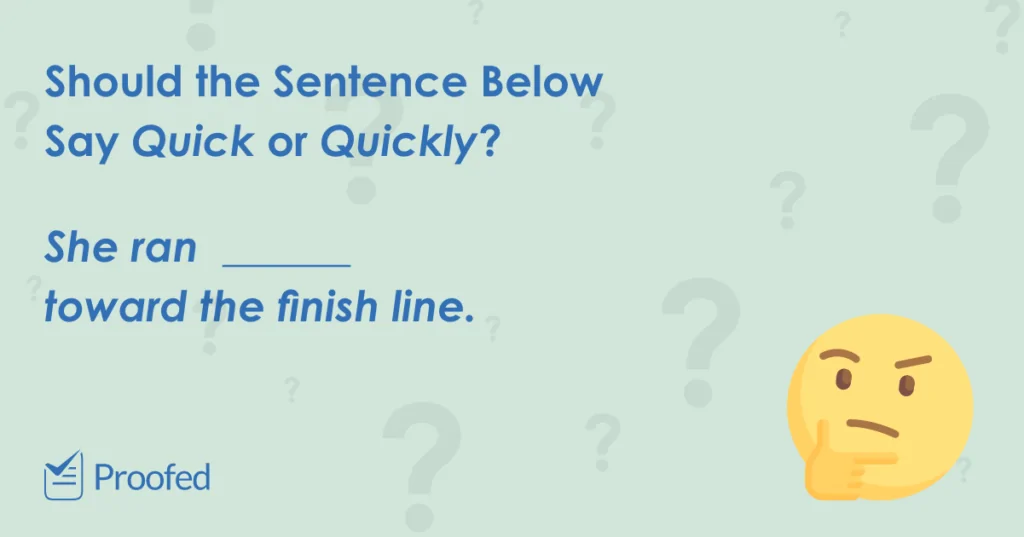Will you read this blog post ‘quick’ or ‘quickly’? Which word should you use and when? If you’re not sure, then check out our simple guide to what these words mean and how to use them correctly.
Quick (Adjective)
‘Quick’ is an adjective, so we use it to modify nouns. Its main use is to describe something that happens at speed or in a short amount of time:
The following morning, we had a quick chat about the incident.
I was expecting a quick response.
We can also use it for someone who is fast to think, learn, or react:
Sophie was a quick learner, picking up the new vocabulary in days.
The word ‘fast’ has a similar meaning to ‘quick’ in some cases, but these words are also different in some important ways.
Quickly (Adverb)
The adverb ‘quickly’ means that something happened at speed or without delay. And since it is an adverb, we use this term to modify verbs (i.e. to say how an action is performed):
Find this useful?
Subscribe to our newsletter and get writing tips from our editors straight to your inbox.
We drove quickly to get home before sunset.
I quickly passed the phone to Tom and left the room.
Nowadays, some people use ‘quick’ as an adverb in place of ‘quickly’:
The book gave tips on how to get rich quick.
This is not usually a problem in everyday conversation, as people will know what you mean. But in formal writing, such as an essay, you should only use ‘quick’ as an adjective and ‘quickly’ as an adverb.
Summary: Quick or Quickly?
These words are similar in that both refer to something being fast or happening in a short amount of time. However, they do have different uses:
- Quick is an adjective, so you should use it to modify nouns.
- Quickly is an adverb, so you should use it to modify verbs.
Hopefully, the difference between these words is now clear. But if you’d like extra help to ensure you have used adjectives and adverbs correctly, why not try proofreading? You’ll find that our service is very quick!



